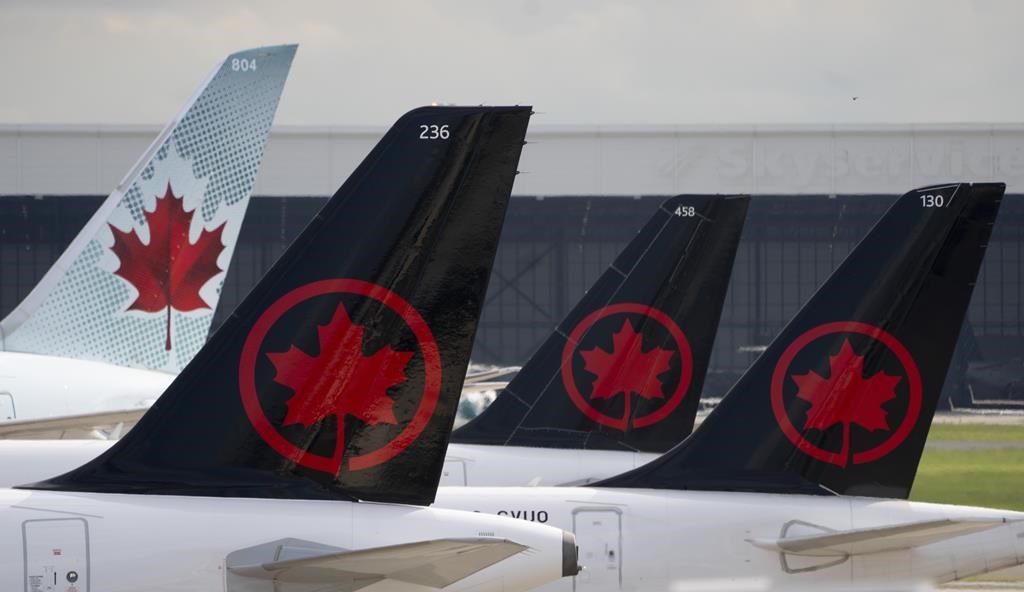


Air Canada lost $81 million in its first quarter, falling below analysts’ expectations even as revenue and capacity ramped up.
Canadians’ diminishing appetite for post-pandemic travel yielded thinner profit margins on fares, while a 21 per cent year-over-year rise in labour costs drove up overall expenses, the company said.
“As expected, pent-up demand and ‘revenge travel’ factors are slowing over time,” said Mark Galardo, head of revenue and network planning, on a conference call with analysts Thursday.
“Winter is challenging every year,” added CEO Michael Rousseau, referring to what is traditionally the toughest quarter for North American carriers.
Nonetheless, the company boosted passenger revenues by nearly 11 per cent year over year in the quarter ended March 31.
It also reaffirmed plans to bolster capacity by between six per cent and eight per cent and increase adjusted earnings to between $3.7 billion and $4.2 billion this year.
However, the airline still expects to remain below its soaring 2019 capacity levels until 2025, five years after the COVID-19 pandemic first hammered the travel industry.
This year, the carrier hopes a long-awaited return in business travel will jump-start its earnings, despite a slow start.
“In Q1 it was relatively stable. We didn’t see a big growth, as some of our American peers did,” Galardo said.
“But as we look late into the quarter and into Q1, we’re starting to see some very encouraging signals on corporate demand — to the tune of almost 10 to 20 per cent greater on a year-over-year basis.”
Executives in the tech and transportation sectors in particular have returned to the skies in greater numbers, he said.
“It’s a little bit early to spike the ball on that, but we’re seeing some very, very strong signals.”
On Thursday, Air Canada reported that it swung to a loss in its first quarter compared to net income of $4 million in the same period a year earlier.
Operating revenue rose seven per cent year over year to $5.23 billion in the three months ended March 31.
On an adjusted basis, the Montreal-based company said it lost 27 cents per diluted share in its latest quarter compared with an adjusted loss of 53 cents per diluted share in the same quarter last year.
While an improvement, the result fell short of analysts’ expectations of an adjusted loss of seven cents per diluted share.